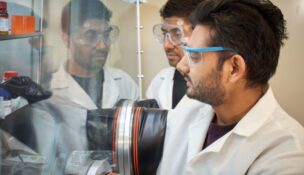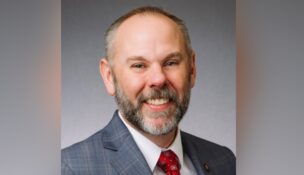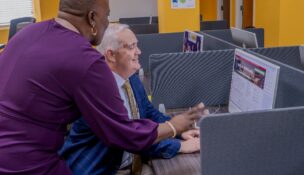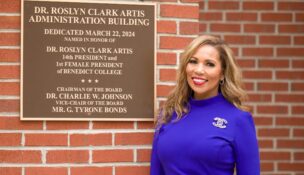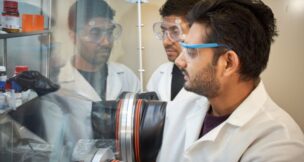New USC center emphasizing bilingual education
Staff //April 5, 2019//
Students who are bilingual are proven to have an easier time developing strong thinking skills, understanding complex concepts, developing socially and emotionally, and have greater long-term success, according to the U.S. Department of Education.
Given those realities, the University of South Carolina is investing in bilingual education across the state, launching a new branch of an international organization intent on promoting bilingual education.
The USC College of Education will now be home to Bilingualism Matters at USC, the newest branch of an organization with locations in the U.S. and throughout Europe and headquartered at the University of Edinburgh in Scotland.
USC education professor Eurydice Bauer will serve as director of the center, after spending time in Illinois establishing and growing bilingual education programs.
The center “will generate research that is sound around bilingualism,” Bauer said, and then share that information with educators across the state to improve and potentially increase bilingual education programs across South Carolina.
“The goal is to engage in that conversation with policy makers, teachers, administrators, parents, students and the average Joe next door, really trying to get a conversation going and sharing what research is saying, what the benefits are, what studies have been done and how to support current endeavors,” Bauer said.
Bauer said she hopes the center will become a hub for the dual language programs across the state where educators and others can feel they have partners and resources.
The center already is collaborating with Richland School District One and Lexington Districts One and Two, all of which already have bilingual education programs.
“We are so excited about the chapter of Bilingualism Matters opening at the University of South Carolina,” Dawn Samples, coordinator of the World Languages and Dual Language Immersion in Lexington One, said in a USC news release. “The center will help us provide solid, research-based professional learning so that we can better inform our parents of the benefits of becoming bilingual and implement best practices in the programs that we build in South Carolina.”
Bauer said she hopes the center, set to open in late March, will become a place that links all of the bilingual education efforts across the state, to help “understand the issues of kids we’re educating better and improve their overall experience and build on the assets we already have in this state.”
South Carolina “is a mecca” for international businesses, Bauer said, which makes it all the more important for the state to invest in bilingual education.
More than 1,200 international firms representing 32 countries call South Carolina home, according to USC.
“One of the things these students coming out of these dual language programs provide is that they become the type of employee that often we hear businesses saying they don’t have or can’t find,” she said. “These kids will have two languages and a certain cognitive flexibility that would be attractive to these businesses.”
State school districts already offer language programs in French, German, Spanish, Latin, Mandarin, Russian and Portuguese in more than 30 programs, Bauer said.
“I don’t think South Carolina gets its credit for that,” she said. “We should be selling that to businesses and educational settings that our kids are going to be more than ready for the future that’s out there — a global future.
“We should be all about the children — their future and how to create that. It’s a long time coming.”
This article first appeared in the March 25 print edition of the Columbia Regional Business Report.






